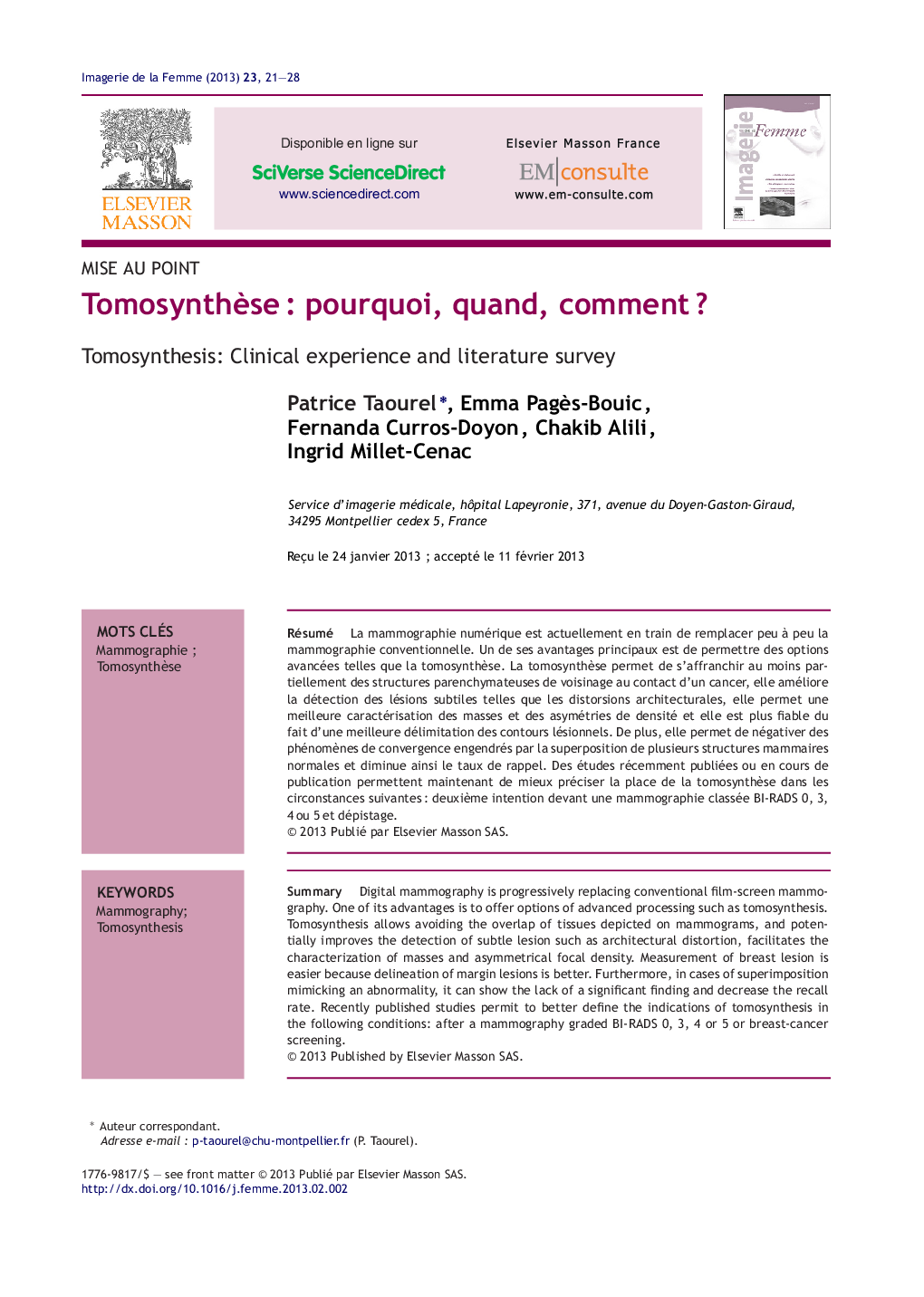| Article ID | Journal | Published Year | Pages | File Type |
|---|---|---|---|---|
| 2736994 | Imagerie de la Femme | 2013 | 8 Pages |
Abstract
Digital mammography is progressively replacing conventional film-screen mammography. One of its advantages is to offer options of advanced processing such as tomosynthesis. Tomosynthesis allows avoiding the overlap of tissues depicted on mammograms, and potentially improves the detection of subtle lesion such as architectural distortion, facilitates the characterization of masses and asymmetrical focal density. Measurement of breast lesion is easier because delineation of margin lesions is better. Furthermore, in cases of superimposition mimicking an abnormality, it can show the lack of a significant finding and decrease the recall rate. Recently published studies permit to better define the indications of tomosynthesis in the following conditions: after a mammography graded BI-RADS 0, 3, 4 or 5 or breast-cancer screening.
Related Topics
Health Sciences
Medicine and Dentistry
Health Informatics
Authors
Patrice Taourel, Emma Pagès-Bouic, Fernanda Curros-Doyon, Chakib Alili, Ingrid Millet-Cenac,
